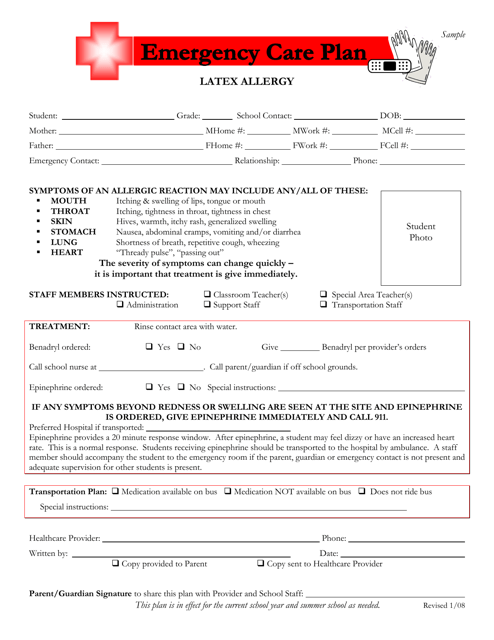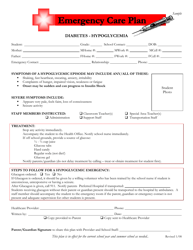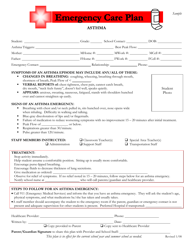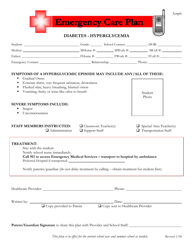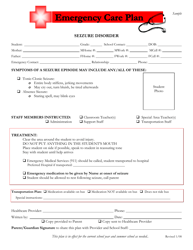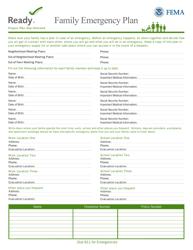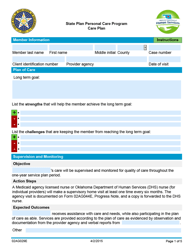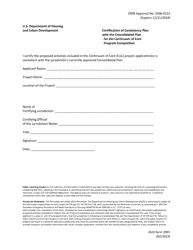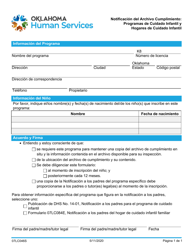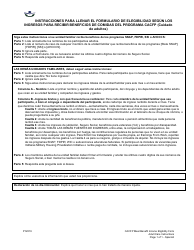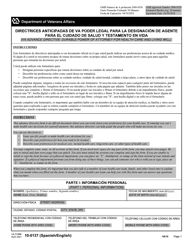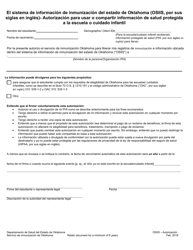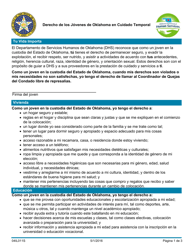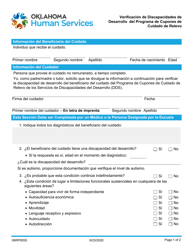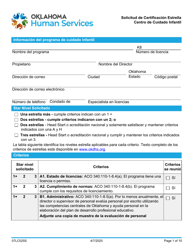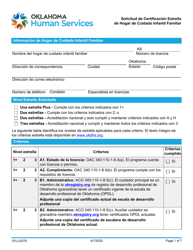Emergency Care Plan - Latex Allergy - Oklahoma
Emergency Care Plan - Latex Allergy is a legal document that was released by the Oklahoma State Department of Health - a government authority operating within Oklahoma.
FAQ
Q: What is a latex allergy?
A: A latex allergy is an allergic reaction to latex, a natural rubber product, often found in gloves, balloons, and medical devices.
Q: How common is latex allergy in the United States?
A: Latex allergy is relatively rare, affecting about 1-6% of the general population in the United States.
Q: What are the symptoms of a latex allergy?
A: Symptoms of a latex allergy can range from mild to severe and may include skin rashes, hives, itching, swelling, difficulty breathing, and in rare cases, anaphylaxis.
Q: How can I avoid latex exposure?
A: To avoid latex exposure, it is recommended to use latex-free products such as synthetic gloves or non-latex balloons. Make sure to inform healthcare providers and others about your latex allergy.
Q: What should I do in case of a severe allergic reaction to latex?
A: In case of a severe allergic reaction to latex, seek immediate medical attention. Carry an epinephrine auto-injector (such as an EpiPen) if prescribed by your doctor.
Q: Are there any alternative materials that can be used instead of latex?
A: Yes, there are alternative materials available, such as nitrile or vinyl gloves, that can be used instead of latex. It is important to check product labels for latex content.
Q: Can a latex allergy be cured?
A: There is currently no cure for latex allergy. The best approach is to avoid latex exposure and manage symptoms through medication and allergen avoidance.
Q: Can a latex allergy develop suddenly?
A: While some people may have an immediate allergic reaction to latex, others may develop a latex allergy over time with repeated exposure.
Q: Are there any cross-reactivities with latex allergy?
A: Yes, some individuals with a latex allergy may also be allergic to certain fruits, such as bananas, avocados, and kiwis, due to cross-reactivity with proteins.
Q: Should I inform my healthcare providers and dentist about my latex allergy?
A: Yes, it is important to inform your healthcare providers, including dentists, about your latex allergy to ensure they use latex-free products during procedures.
Form Details:
- Released on January 1, 2008;
- The latest edition currently provided by the Oklahoma State Department of Health;
- Ready to use and print;
- Easy to customize;
- Compatible with most PDF-viewing applications;
- Fill out the form in our online filing application.
Download a printable version of the form by clicking the link below or browse more documents and templates provided by the Oklahoma State Department of Health.
